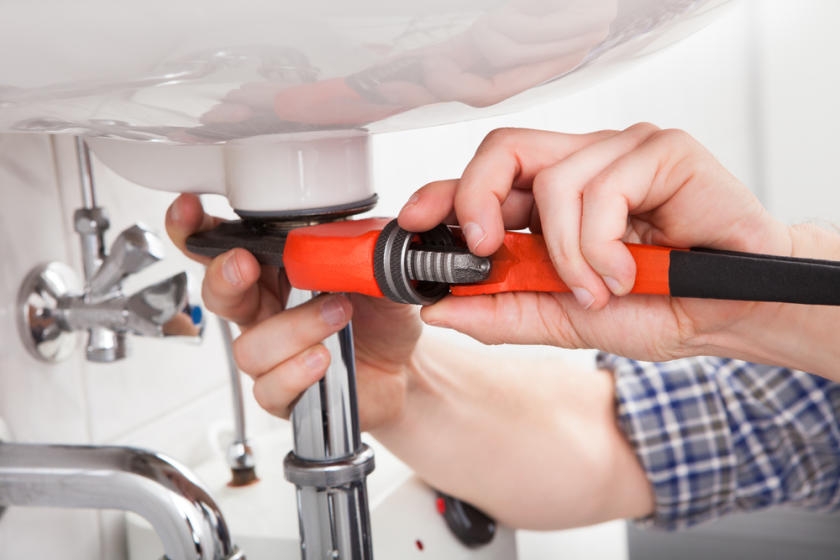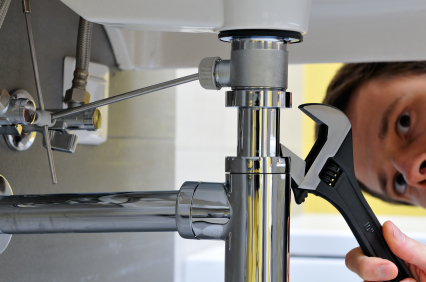Quick Solutions for Pipe Problems: Steps to Take Until Help Arrives
Quick Solutions for Pipe Problems: Steps to Take Until Help Arrives
Blog Article
Listed here below you might get additional wonderful content about Plumbing Emergencies: Tips on What To Do Before.

Pipes emergency situations can strike at any moment, triggering anxiety and prospective damage to your home. Whether it's a burst pipeline, a clogged up drainpipe, or a dripping tap, understanding exactly how to manage the situation until a specialist plumbing professional gets here can conserve you from additional problems. This article provides essential emergency situation pipes ideas to assist you mitigate damages and reclaim control throughout a plumbing crisis.
Switch off the Water
The primary step in any type of plumbing emergency situation is to turn off the supply of water. For localized concerns, such as a dripping faucet or toilet, switch off the shutoff near the fixture. When it comes to a significant leak or ruptured pipeline, find your home's main water shut-off shutoff and turn it off immediately. Recognizing the place of these valves ahead of time can conserve valuable time throughout an emergency situation.
Shut Off Your Hot Water Heater
In specific emergencies, such as a ruptured pipe, it's important to turn off your water heater. This stops overheating or damages to the system when water stops streaming. Switch off the power supply to the hot water heater (electric or gas) and allow it cool down to stay clear of prospective threats.
Briefly Stop a Ruptured Pipe
A ruptured pipe can cause significant water damages in minutes. To minimize the issue:
Call an expert plumbing professional right away to resolve the issue completely.
Have an Emergency Plumbing Package
Prepare a basic pipes emergency set to take care of minor problems properly. Your kit must consist of:
Having these devices accessible can make a substantial difference in your capability to take care of emergency situations.
Unclog Drains Securely.
A clogged up drain can be an aggravating and untidy concern. Here's just how to tackle it:.
If these approaches do not work, avoid using extreme force, as it may aggravate the clog.
Take Care Of Overflowing Toilets.
An overruning commode can create prompt chaos. Here's what you should do:.
Address Tiny Leakages with Momentary Repairs.
Small leaks can quickly come to be substantial issues if left untreated. Utilize these short-term fixes till specialist assistance shows up:.
While these repairs aren't permanent, they can aid lessen water loss and damage.
Handle Frozen Piping Very Carefully.
In colder environments, icy pipes are an usual emergency situation. If you suspect an icy pipe:.
Know When to Call an Expert.
While quick fixes can aid briefly, certain pipes issues call for immediate expert attention. Call a plumbing professional if:.
Quickly speaking to a professional makes sure the issue is solved appropriately and avoids more complications.
Stop More Damage.
Taking fast action to reduce damages can save you time and money in the future. Below's how:.
Verdict.
Plumbing emergencies can be frustrating, yet with the right knowledge and tools, you can handle the scenario effectively until assistance shows up. By switching off the water supply, dealing with little leakages, and making use of short-lived fixes, you can minimize damage and keep your home safe. Keep in mind, these ideas are short-lived remedies; always consult a certified plumbing to manage the source of the issue. Prep work and fast reasoning are your ideal allies in any kind of pipes emergency situation.
8 Helpful Tips for Managing Plumbing Emergencies at Home
If your plumbing system hasn’t failed once, wait for it because almost everyone has a story to tell. Sometimes, it could be simple emergencies such as a leaking pipe, a blocked cistern, or even a big burst pipe. In situations like this, you need to have some handy tips to save you some money and from possible damages.
Take care of minor issues early.
Sometimes, you could have avoided an emergency by taking proactive measures while it was still early. Some major plumbing emergencies can be a result of an ignored minor issue. We recommend that you have items like plumbing tapes and other related items. A plumbing tape can allow you to manage minor leaks before the plumber arrives.
Cut off the water supply.
This tip is essential in almost any type of leakage problem. For problems like minor leakages in the toilet or kitchen, turn off the supply that takes water to the affected pipes. If the leakage is a major pipe, you must shut off the supply valve to the entire building. This will help you avoid flooding your home and neighbors if you share a flat.
Know your plumbing system
Folks typically move into a new apartment without understanding the water supply around the building. This can prove disastrous if a water emergency arises and the plumber is far away. The previous tip will prove useless if you don’t practice this one. More importantly, know where your water shut-off valve is located – you’ll need that knowledge to prevent potential home floods.
Have some common handy tools
There are lots of plumbing emergencies that you can handle without hiring a plumber. That’s why you must keep some tools available always. Some tools that you can use to fix simple plumbing emergencies easily include plumbing tapes, screwdrivers, thread seal tapes, plungers, pliers, tape measures, and rubber gloves.
Insulate your pipes from cold
You’ll save yourself from many plumbing expenses if you protect your water pipes from the cold. This is because of the harmful effects that cold weather can have on your pipes. During winter, your pipes can burst from being overly expected to freezing temperatures. So, make sure insulators are there to keep the pipes working correctly.
Avoid practices that will clog your toilet.
Many people indulge in practices that can damage the plumbing system of the entire building. One of these is when they use their toilet to dispose-off garbage. They flush all kinds of things, such as paper towels, bandages, hairs, female sanitary products, etc., down the toilet. This will block your toilet in the long run, incurring unnecessary expenditures. Dump such waste in the trash instead.
Check your dials regularly.
Sometimes, there could be leakages in your home without noticing them in time. So, constantly monitor your water meter dial. If the dial is reading when there is nobody using water, this is an indicator that there is leaking. Check for leaks immediately. Call a plumber as soon as possible if you can’t find any.
https://www.constructionplacements.com/8-helpful-tips-for-managing-plumbing-emergencies-at-home/

Do you enjoy reading about Expert Tips for Emergency Plumbing Repairs? Write feedback down below. We will be pleased to hear your thoughts about this blog post. Hoping that you visit us again later on. Please set aside a second to distribute this blog if you liked it. Many thanks for being here. Kindly come visit our blog back soon.
Call Today Report this page